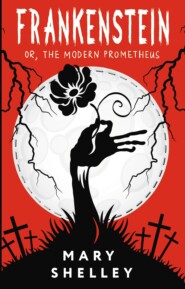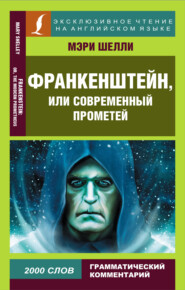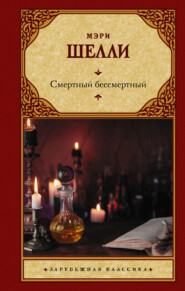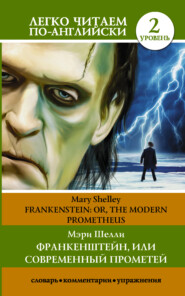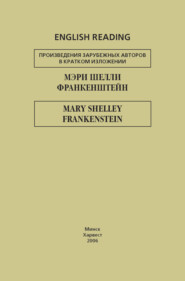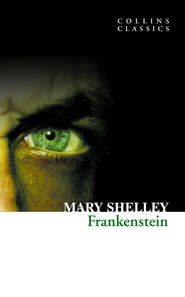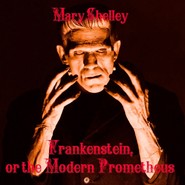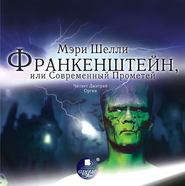По всем вопросам обращайтесь на: info@litportal.ru
(©) 2003-2025.
✖
The Last Man
Настройки чтения
Размер шрифта
Высота строк
Поля
"You have learnt a pretty lesson, Perdita," said I, "and repeat it so literally, that you forget the while the proofs we have of the Earl's virtues; his generosity to us is manifest in our plenty, his bravery in the protection he affords us, his affability in the notice he takes of us. His rank his least merit, do you say? Why, all his virtues are derived from his station only; because he is rich, he is called generous; because he is powerful, brave; because he is well served, he is affable. Let them call him so, let all England believe him to be thus – we know him – he is our enemy – our penurious, dastardly, arrogant enemy; if he were gifted with one particle of the virtues you call his, he would do justly by us, if it were only to shew, that if he must strike, it should not be a fallen foe. His father injured my father – his father, unassailable on his throne, dared despise him who only stooped beneath himself, when he deigned to associate with the royal ingrate. We, descendants from the one and the other, must be enemies also. He shall find that I can feel my injuries; he shall learn to dread my revenge!"
A few days after he arrived. Every inhabitant of the most miserable cottage, went to swell the stream of population that poured forth to meet him: even Perdita, in spite of my late philippic, crept near the highway, to behold this idol of all hearts. I, driven half mad, as I met party after party of the country people, in their holiday best, descending the hills, escaped to their cloud-veiled summits, and looking on the sterile rocks about me, exclaimed – "They do not cry, long live the Earl!" Nor, when night came, accompanied by drizzling rain and cold, would I return home; for I knew that each cottage rang with the praises of Adrian; as I felt my limbs grow numb and chill, my pain served as food for my insane aversion; nay, I almost triumphed in it, since it seemed to afford me reason and excuse for my hatred of my unheeding adversary. All was attributed to him, for I confounded so entirely the idea of father and son, that I forgot that the latter might be wholly unconscious of his parent's neglect of us; and as I struck my aching head with my hand, I cried: "He shall hear of this! I will be revenged! I will not suffer like a spaniel! He shall know, beggar and friendless as I am, that I will not tamely submit to injury!" Each day, each hour added to these exaggerated wrongs. His praises were so many adder's stings infixed in my vulnerable breast. If I saw him at a distance, riding a beautiful horse, my blood boiled with rage; the air seemed poisoned by his presence, and my very native English was changed to a vile jargon, since every phrase I heard was coupled with his name and honour. I panted to relieve this painful heart-burning by some misdeed that should rouse him to a sense of my antipathy. It was the height of his offending, that he should occasion in me such intolerable sensations, and not deign himself to afford any demonstration that he was aware that I even lived to feel them.
It soon became known that Adrian took great delight in his park and preserves. He never sported, but spent hours in watching the tribes of lovely and almost tame animals with which it was stocked, and ordered that greater care should be taken of them than ever. Here was an opening for my plans of offence, and I made use of it with all the brute impetuosity I derived from my active mode of life. I proposed the enterprize of poaching on his demesne to my few remaining comrades, who were the most determined and lawless of the crew; but they all shrunk from the peril; so I was left to achieve my revenge myself. At first my exploits were unperceived; I increased in daring; footsteps on the dewy grass, torn boughs, and marks of slaughter, at length betrayed me to the game-keepers. They kept better watch; I was taken, and sent to prison. I entered its gloomy walls in a fit of triumphant extasy: "He feels me now," I cried, "and shall, again and again!" – I passed but one day in confinement; in the evening I was liberated, as I was told, by the order of the Earl himself. This news precipitated me from my self-raised pinnacle of honour. He despises me, I thought; but he shall learn that I despise him, and hold in equal contempt his punishments and his clemency. On the second night after my release, I was again taken by the gamekeepers – again imprisoned, and again released; and again, such was my pertinacity, did the fourth night find me in the forbidden park. The gamekeepers were more enraged than their lord by my obstinacy. They had received orders that if I were again taken, I should be brought to the Earl; and his lenity made them expect a conclusion which they considered ill befitting my crime. One of them, who had been from the first the leader among those who had seized me, resolved to satisfy his own resentment, before he made me over to the higher powers.
The late setting of the moon, and the extreme caution I was obliged to use in this my third expedition, consumed so much time, that something like a qualm of fear came over me when I perceived dark night yield to twilight. I crept along by the fern, on my hands and knees, seeking the shadowy coverts of the underwood, while the birds awoke with unwelcome song above, and the fresh morning wind, playing among the boughs, made me suspect a footfall at each turn. My heart beat quick as I approached the palings; my hand was on one of them, a leap would take me to the other side, when two keepers sprang from an ambush upon me: one knocked me down, and proceeded to inflict a severe horse-whipping. I started up – a knife was in my grasp; I made a plunge at his raised right arm, and inflicted a deep, wide wound in his hand. The rage and yells of the wounded man, the howling execrations of his comrade, which I answered with equal bitterness and fury, echoed through the dell; morning broke more and more, ill accordant in its celestial beauty with our brute and noisy contest. I and my enemy were still struggling, when the wounded man exclaimed, "The Earl!" I sprang out of the herculean hold of the keeper, panting from my exertions; I cast furious glances on my persecutors, and placing myself with my back to a tree, resolved to defend myself to the last. My garments were torn, and they, as well as my hands, were stained with the blood of the man I had wounded; one hand grasped the dead birds – my hard-earned prey, the other held the knife; my hair was matted; my face besmeared with the same guilty signs that bore witness against me on the dripping instrument I clenched; my whole appearance was haggard and squalid. Tall and muscular as I was in form, I must have looked like, what indeed I was, the merest ruffian that ever trod the earth.
The name of the Earl startled me, and caused all the indignant blood that warmed my heart to rush into my cheeks; I had never seen him before; I figured to myself a haughty, assuming youth, who would take me to task, if he deigned to speak to me, with all the arrogance of superiority. My reply was ready; a reproach I deemed calculated to sting his very heart. He came up the while; and his appearance blew aside, with gentle western breath, my cloudy wrath: a tall, slim, fair boy, with a physiognomy expressive of the excess of sensibility and refinement stood before me; the morning sunbeams tinged with gold his silken hair, and spread light and glory over his beaming countenance. "How is this?" he cried. The men eagerly began their defence; he put them aside, saying, "Two of you at once on a mere lad – for shame!" He came up to me: "Verney," he cried, "Lionel Verney, do we meet thus for the first time? We were born to be friends to each other; and though ill fortune has divided us, will you not acknowledge the hereditary bond of friendship which I trust will hereafter unite us?"
As he spoke, his earnest eyes, fixed on me, seemed to read my very soul: my heart, my savage revengeful heart, felt the influence of sweet benignity sink upon it; while his thrilling voice, like sweetest melody, awoke a mute echo within me, stirring to its depths the life-blood in my frame. I desired to reply, to acknowledge his goodness, accept his proffered friendship; but words, fitting words, were not afforded to the rough mountaineer; I would have held out my hand, but its guilty stain restrained me. Adrian took pity on my faltering mien: "Come with me," he said, "I have much to say to you; come home with me – you know who I am?"
"Yes," I exclaimed, "I do believe that I now know you, and that you will pardon my mistakes – my crime."
Adrian smiled gently; and after giving his orders to the gamekeepers, he came up to me; putting his arm in mine, we walked together to the mansion.
It was not his rank – after all that I have said, surely it will not be suspected that it was Adrian's rank, that, from the first, subdued my heart of hearts, and laid my entire spirit prostrate before him. Nor was it I alone who felt thus intimately his perfections. His sensibility and courtesy fascinated every one. His vivacity, intelligence, and active spirit of benevolence, completed the conquest. Even at this early age, he was deep read and imbued with the spirit of high philosophy. This spirit gave a tone of irresistible persuasion to his intercourse with others, so that he seemed like an inspired musician, who struck, with unerring skill, the "lyre of mind," and produced thence divine harmony. In person, he hardly appeared of this world; his slight frame was overinformed by the soul that dwelt within; he was all mind; "Man but a rush against" his breast, and it would have conquered his strength; but the might of his smile would have tamed an hungry lion, or caused a legion of armed men to lay their weapons at his feet.
I spent the day with him. At first he did not recur to the past, or indeed to any personal occurrences. He wished probably to inspire me with confidence, and give me time to gather together my scattered thoughts. He talked of general subjects, and gave me ideas I had never before conceived. We sat in his library, and he spoke of the old Greek sages, and of the power which they had acquired over the minds of men, through the force of love and wisdom only. The room was decorated with the busts of many of them, and he described their characters to me. As he spoke, I felt subject to him; and all my boasted pride and strength were subdued by the honeyed accents of this blue-eyed boy. The trim and paled demesne of civilization, which I had before regarded from my wild jungle as inaccessible, had its wicket opened by him; I stepped within, and felt, as I entered, that I trod my native soil.
As evening came on, he reverted to the past. "I have a tale to relate," he said, "and much explanation to give concerning the past; perhaps you can assist me to curtail it. Do you remember your father? I had never the happiness of seeing him, but his name is one of my earliest recollections: he stands written in my mind's tablets as the type of all that was gallant, amiable, and fascinating in man. His wit was not more conspicuous than the overflowing goodness of his heart, which he poured in such full measure on his friends, as to leave, alas! small remnant for himself."
Encouraged by this encomium, I proceeded, in answer to his inquiries, to relate what I remembered of my parent; and he gave an account of those circumstances which had brought about a neglect of my father's testamentary letter. When, in after times, Adrian's father, then king of England, felt his situation become more perilous, his line of conduct more embarrassed, again and again he wished for his early friend, who might stand a mound against the impetuous anger of his queen, a mediator between him and the parliament. From the time that he had quitted London, on the fatal night of his defeat at the gaming-table, the king had received no tidings concerning him; and when, after the lapse of years, he exerted himself to discover him, every trace was lost. With fonder regret than ever, he clung to his memory; and gave it in charge to his son, if ever he should meet this valued friend, in his name to bestow every succour, and to assure him that, to the last, his attachment survived separation and silence.
A short time before Adrian's visit to Cumberland, the heir of the nobleman to whom my father had confided his last appeal to his royal master, put this letter, its seal unbroken, into the young Earl's hands. It had been found cast aside with a mass of papers of old date, and accident alone brought it to light. Adrian read it with deep interest; and found there that living spirit of genius and wit he had so often heard commemorated. He discovered the name of the spot whither my father had retreated, and where he died; he learnt the existence of his orphan children; and during the short interval between his arrival at Ulswater and our meeting in the park, he had been occupied in making inquiries concerning us, and arranging a variety of plans for our benefit, preliminary to his introducing himself to our notice.
The mode in which he spoke of my father was gratifying to my vanity; the veil which he delicately cast over his benevolence, in alledging a duteous fulfilment of the king's latest will, was soothing to my pride. Other feelings, less ambiguous, were called into play by his conciliating manner and the generous warmth of his expressions, respect rarely before experienced, admiration, and love – he had touched my rocky heart with his magic power, and the stream of affection gushed forth, imperishable and pure. In the evening we parted; he pressed my hand: "We shall meet again; come to me to-morrow." I clasped that kind hand; I tried to answer; a fervent "God bless you!" was all my ignorance could frame of speech, and I darted away, oppressed by my new emotions.
I could not rest. I sought the hills; a west wind swept them, and the stars glittered above. I ran on, careless of outward objects, but trying to master the struggling spirit within me by means of bodily fatigue. "This," I thought, "is power! Not to be strong of limb, hard of heart, ferocious, and daring; but kind compassionate and soft." – Stopping short, I clasped my hands, and with the fervour of a new proselyte, cried, "Doubt me not, Adrian, I also will become wise and good!" and then quite overcome, I wept aloud.
As this gust of passion passed from me, I felt more composed. I lay on the ground, and giving the reins to my thoughts, repassed in my mind my former life; and began, fold by fold, to unwind the many errors of my heart, and to discover how brutish, savage, and worthless I had hitherto been. I could not however at that time feel remorse, for methought I was born anew; my soul threw off the burthen of past sin, to commence a new career in innocence and love. Nothing harsh or rough remained to jar with the soft feelings which the transactions of the day had inspired; I was as a child lisping its devotions after its mother, and my plastic soul was remoulded by a master hand, which I neither desired nor was able to resist.
This was the first commencement of my friendship with Adrian, and I must commemorate this day as the most fortunate of my life. I now began to be human. I was admitted within that sacred boundary which divides the intellectual and moral nature of man from that which characterizes animals. My best feelings were called into play to give fitting responses to the generosity, wisdom, and amenity of my new friend. He, with a noble goodness all his own, took infinite delight in bestowing to prodigality the treasures of his mind and fortune on the long-neglected son of his father's friend, the offspring of that gifted being whose excellencies and talents he had heard commemorated from infancy.
After his abdication the late king had retreated from the sphere of politics, yet his domestic circle afforded him small content. The ex-queen had none of the virtues of domestic life, and those of courage and daring which she possessed were rendered null by the secession of her husband: she despised him, and did not care to conceal her sentiments. The king had, in compliance with her exactions, cast off his old friends, but he had acquired no new ones under her guidance. In this dearth of sympathy, he had recourse to his almost infant son; and the early development of talent and sensibility rendered Adrian no unfitting depository of his father's confidence. He was never weary of listening to the latter's often repeated accounts of old times, in which my father had played a distinguished part; his keen remarks were repeated to the boy, and remembered by him; his wit, his fascinations, his very faults were hallowed by the regret of affection; his loss was sincerely deplored. Even the queen's dislike of the favourite was ineffectual to deprive him of his son's admiration: it was bitter, sarcastic, contemptuous – but as she bestowed her heavy censure alike on his virtues as his errors, on his devoted friendship and his ill-bestowed loves, on his disinterestedness and his prodigality, on his pre-possessing grace of manner, and the facility with which he yielded to temptation, her double shot proved too heavy, and fell short of the mark. Nor did her angry dislike prevent Adrian from imaging my father, as he had said, the type of all that was gallant, amiable, and fascinating in man. It was not strange therefore, that when he heard of the existence of the offspring of this celebrated person, he should have formed the plan of bestowing on them all the advantages his rank made him rich to afford. When he found me a vagabond shepherd of the hills, a poacher, an unlettered savage, still his kindness did not fail. In addition to the opinion he entertained that his father was to a degree culpable of neglect towards us, and that he was bound to every possible reparation, he was pleased to say that under all my ruggedness there glimmered forth an elevation of spirit, which could be distinguished from mere animal courage, and that I inherited a similarity of countenance to my father, which gave proof that all his virtues and talents had not died with him. Whatever those might be which descended to me, my noble young friend resolved should not be lost for want of culture.
Acting upon this plan in our subsequent intercourse, he led me to wish to participate in that cultivation which graced his own intellect. My active mind, when once it seized upon this new idea, fastened on it with extreme avidity. At first it was the great object of my ambition to rival the merits of my father, and render myself worthy of the friendship of Adrian. But curiosity soon awoke, and an earnest love of knowledge, which caused me to pass days and nights in reading and study. I was already well acquainted with what I may term the panorama of nature, the change of seasons, and the various appearances of heaven and earth. But I was at once startled and enchanted by my sudden extension of vision, when the curtain, which had been drawn before the intellectual world, was withdrawn, and I saw the universe, not only as it presented itself to my outward senses, but as it had appeared to the wisest among men. Poetry and its creations, philosophy and its researches and classifications, alike awoke the sleeping ideas in my mind, and gave me new ones.
I felt as the sailor, who from the topmast first discovered the shore of America; and like him I hastened to tell my companions of my discoveries in unknown regions. But I was unable to excite in any breast the same craving appetite for knowledge that existed in mine. Even Perdita was unable to understand me. I had lived in what is generally called the world of reality, and it was awakening to a new country to find that there was a deeper meaning in all I saw, besides that which my eyes conveyed to me. The visionary Perdita beheld in all this only a new gloss upon an old reading, and her own was sufficiently inexhaustible to content her. She listened to me as she had done to the narration of my adventures, and sometimes took an interest in this species of information; but she did not, as I did, look on it as an integral part of her being, which having obtained, I could no more put off than the universal sense of touch.
We both agreed in loving Adrian: although she not having yet escaped from childhood could not appreciate as I did the extent of his merits, or feel the same sympathy in his pursuits and opinions. I was for ever with him. There was a sensibility and sweetness in his disposition, that gave a tender and unearthly tone to our converse. Then he was gay as a lark carolling from its skiey tower, soaring in thought as an eagle, innocent as the mild-eyed dove. He could dispel the seriousness of Perdita, and take the sting from the torturing activity of my nature. I looked back to my restless desires and painful struggles with my fellow beings as to a troubled dream, and felt myself as much changed as if I had transmigrated into another form, whose fresh sensorium and mechanism of nerves had altered the reflection of the apparent universe in the mirror of mind. But it was not so; I was the same in strength, in earnest craving for sympathy, in my yearning for active exertion. My manly virtues did not desert me, for the witch Urania spared the locks of Sampson, while he reposed at her feet; but all was softened and humanized. Nor did Adrian instruct me only in the cold truths of history and philosophy. At the same time that he taught me by their means to subdue my own reckless and uncultured spirit, he opened to my view the living page of his own heart, and gave me to feel and understand its wondrous character.
The ex-queen of England had, even during infancy, endeavoured to implant daring and ambitious designs in the mind of her son. She saw that he was endowed with genius and surpassing talent; these she cultivated for the sake of afterwards using them for the furtherance of her own views. She encouraged his craving for knowledge and his impetuous courage; she even tolerated his tameless love of freedom, under the hope that this would, as is too often the case, lead to a passion for command. She endeavoured to bring him up in a sense of resentment towards, and a desire to revenge himself upon, those who had been instrumental in bringing about his father's abdication. In this she did not succeed. The accounts furnished him, however distorted, of a great and wise nation asserting its right to govern itself, excited his admiration: in early days he became a republican from principle. Still his mother did not despair. To the love of rule and haughty pride of birth she added determined ambition, patience, and self-control. She devoted herself to the study of her son's disposition. By the application of praise, censure, and exhortation, she tried to seek and strike the fitting chords; and though the melody that followed her touch seemed discord to her, she built her hopes on his talents, and felt sure that she would at last win him. The kind of banishment he now experienced arose from other causes.
The ex-queen had also a daughter, now twelve years of age; his fairy sister, Adrian was wont to call her; a lovely, animated, little thing, all sensibility and truth. With these, her children, the noble widow constantly resided at Windsor; and admitted no visitors, except her own partizans, travellers from her native Germany, and a few of the foreign ministers. Among these, and highly distinguished by her, was Prince Zaimi, ambassador to England from the free States of Greece; and his daughter, the young Princess Evadne, passed much of her time at Windsor Castle. In company with this sprightly and clever Greek girl, the Countess would relax from her usual state. Her views with regard to her own children, placed all her words and actions relative to them under restraint: but Evadne was a plaything she could in no way fear; nor were her talents and vivacity slight alleviations to the monotony of the Countess's life.
Evadne was eighteen years of age. Although they spent much time together at Windsor, the extreme youth of Adrian prevented any suspicion as to the nature of their intercourse. But he was ardent and tender of heart beyond the common nature of man, and had already learnt to love, while the beauteous Greek smiled benignantly on the boy. It was strange to me, who, though older than Adrian, had never loved, to witness the whole heart's sacrifice of my friend. There was neither jealousy, inquietude, or mistrust in his sentiment; it was devotion and faith. His life was swallowed up in the existence of his beloved; and his heart beat only in unison with the pulsations that vivified hers. This was the secret law of his life – he loved and was beloved. The universe was to him a dwelling, to inhabit with his chosen one; and not either a scheme of society or an enchainment of events, that could impart to him either happiness or misery. What, though life and the system of social intercourse were a wilderness, a tiger-haunted jungle! Through the midst of its errors, in the depths of its savage recesses, there was a disentangled and flowery pathway, through which they might journey in safety and delight. Their track would be like the passage of the Red Sea, which they might traverse with unwet feet, though a wall of destruction were impending on either side.
Alas! why must I record the hapless delusion of this matchless specimen of humanity? What is there in our nature that is for ever urging us on towards pain and misery? We are not formed for enjoyment; and, however we may be attuned to the reception of pleasureable emotion, disappointment is the never-failing pilot of our life's bark, and ruthlessly carries us on to the shoals. Who was better framed than this highly-gifted youth to love and be beloved, and to reap unalienable joy from an unblamed passion? If his heart had slept but a few years longer, he might have been saved; but it awoke in its infancy; it had power, but no knowledge; and it was ruined, even as a too early-blowing bud is nipt by the killing frost.
I did not accuse Evadne of hypocrisy or a wish to deceive her lover; but the first letter that I saw of hers convinced me that she did not love him; it was written with elegance, and, foreigner as she was, with great command of language. The hand-writing itself was exquisitely beautiful; there was something in her very paper and its folds, which even I, who did not love, and was withal unskilled in such matters, could discern as being tasteful. There was much kindness, gratitude, and sweetness in her expression, but no love. Evadne was two years older than Adrian; and who, at eighteen, ever loved one so much their junior? I compared her placid epistles with the burning ones of Adrian. His soul seemed to distil itself into the words he wrote; and they breathed on the paper, bearing with them a portion of the life of love, which was his life. The very writing used to exhaust him; and he would weep over them, merely from the excess of emotion they awakened in his heart.
Adrian's soul was painted in his countenance, and concealment or deceit were at the antipodes to the dreadless frankness of his nature. Evadne made it her earnest request that the tale of their loves should not be revealed to his mother; and after for a while contesting the point, he yielded it to her. A vain concession; his demeanour quickly betrayed his secret to the quick eyes of the ex-queen. With the same wary prudence that characterized her whole conduct, she concealed her discovery, but hastened to remove her son from the sphere of the attractive Greek. He was sent to Cumberland; but the plan of correspondence between the lovers, arranged by Evadne, was effectually hidden from her. Thus the absence of Adrian, concerted for the purpose of separating, united them in firmer bonds than ever. To me he discoursed ceaselessly of his beloved Ionian. Her country, its ancient annals, its late memorable struggles, were all made to partake in her glory and excellence. He submitted to be away from her, because she commanded this submission; but for her influence, he would have declared his attachment before all England, and resisted, with unshaken constancy, his mother's opposition. Evadne's feminine prudence perceived how useless any assertion of his resolves would be, till added years gave weight to his power. Perhaps there was besides a lurking dislike to bind herself in the face of the world to one whom she did not love – not love, at least, with that passionate enthusiasm which her heart told her she might one day feel towards another. He obeyed her injunctions, and passed a year in exile in Cumberland.
CHAPTER III
HAPPY, thrice happy, were the months, and weeks, and hours of that year. Friendship, hand in hand with admiration, tenderness and respect, built a bower of delight in my heart, late rough as an untrod wild in America, as the homeless wind or herbless sea. Insatiate thirst for knowledge, and boundless affection for Adrian, combined to keep both my heart and understanding occupied, and I was consequently happy. What happiness is so true and unclouded, as the overflowing and talkative delight of young people. In our boat, upon my native lake, beside the streams and the pale bordering poplars – in valley and over hill, my crook thrown aside, a nobler flock to tend than silly sheep, even a flock of new-born ideas, I read or listened to Adrian; and his discourse, whether it concerned his love or his theories for the improvement of man, alike entranced me. Sometimes my lawless mood would return, my love of peril, my resistance to authority; but this was in his absence; under the mild sway of his dear eyes, I was obedient and good as a boy of five years old, who does his mother's bidding.
After a residence of about a year at Ulswater, Adrian visited London, and came back full of plans for our benefit. You must begin life, he said: you are seventeen, and longer delay would render the necessary apprenticeship more and more irksome. He foresaw that his own life would be one of struggle, and I must partake his labours with him. The better to fit me for this task, we must now separate. He found my name a good passport to preferment, and he had procured for me the situation of private secretary to the Ambassador at Vienna, where I should enter on my career under the best auspices. In two years, I should return to my country, with a name well known and a reputation already founded.
And Perdita? – Perdita was to become the pupil, friend and younger sister of Evadne. With his usual thoughtfulness, he had provided for her independence in this situation. How refuse the offers of this generous friend? – I did not wish to refuse them; but in my heart of hearts, I made a vow to devote life, knowledge, and power, all of which, in as much as they were of any value, he had bestowed on me – all, all my capacities and hopes, to him alone I would devote.
Thus I promised myself, as I journied towards my destination with roused and ardent expectation: expectation of the fulfilment of all that in boyhood we promise ourselves of power and enjoyment in maturity. Methought the time was now arrived, when, childish occupations laid aside, I should enter into life. Even in the Elysian fields, Virgil describes the souls of the happy as eager to drink of the wave which was to restore them to this mortal coil. The young are seldom in Elysium, for their desires, outstripping possibility, leave them as poor as a moneyless debtor. We are told by the wisest philosophers of the dangers of the world, the deceits of men, and the treason of our own hearts: but not the less fearlessly does each put off his frail bark from the port, spread the sail, and strain his oar, to attain the multitudinous streams of the sea of life. How few in youth's prime, moor their vessels on the "golden sands," and collect the painted shells that strew them. But all at close of day, with riven planks and rent canvas make for shore, and are either wrecked ere they reach it, or find some wave-beaten haven, some desart strand, whereon to cast themselves and die unmourned.
A truce to philosophy! – Life is before me, and I rush into possession. Hope, glory, love, and blameless ambition are my guides, and my soul knows no dread. What has been, though sweet, is gone; the present is good only because it is about to change, and the to come is all my own. Do I fear, that my heart palpitates? high aspirations cause the flow of my blood; my eyes seem to penetrate the cloudy midnight of time, and to discern within the depths of its darkness, the fruition of all my soul desires.
Now pause! – During my journey I might dream, and with buoyant wings reach the summit of life's high edifice. Now that I am arrived at its base, my pinions are furled, the mighty stairs are before me, and step by step I must ascend the wondrous fane – Speak! – What door is opened?
Behold me in a new capacity. A diplomatist: one among the pleasure-seeking society of a gay city; a youth of promise; favourite of the Ambassador. All was strange and admirable to the shepherd of Cumberland. With breathless amaze I entered on the gay scene, whose actors were – the lilies glorious as Solomon, Who toil not, neither do they spin.
Soon, too soon, I entered the giddy whirl; forgetting my studious hours, and the companionship of Adrian. Passionate desire of sympathy, and ardent pursuit for a wished-for object still characterized me. The sight of beauty entranced me, and attractive manners in man or woman won my entire confidence. I called it rapture, when a smile made my heart beat; and I felt the life's blood tingle in my frame, when I approached the idol which for awhile I worshipped. The mere flow of animal spirits was Paradise, and at night's close I only desired a renewal of the intoxicating delusion. The dazzling light of ornamented rooms; lovely forms arrayed in splendid dresses; the motions of a dance, the voluptuous tones of exquisite music, cradled my senses in one delightful dream.
And is not this in its kind happiness? I appeal to moralists and sages. I ask if in the calm of their measured reveries, if in the deep meditations which fill their hours, they feel the extasy of a youthful tyro in the school of pleasure? Can the calm beams of their heaven-seeking eyes equal the flashes of mingling passion which blind his, or does the influence of cold philosophy steep their soul in a joy equal to his, engaged.
In this dear work of youthful revelry.
But in truth, neither the lonely meditations of the hermit, nor the tumultuous raptures of the reveller, are capable of satisfying man's heart. From the one we gather unquiet speculation, from the other satiety. The mind flags beneath the weight of thought, and droops in the heartless intercourse of those whose sole aim is amusement. There is no fruition in their vacant kindness, and sharp rocks lurk beneath the smiling ripples of these shallow waters.
Thus I felt, when disappointment, weariness, and solitude drove me back upon my heart, to gather thence the joy of which it had become barren. My flagging spirits asked for something to speak to the affections; and not finding it, I drooped. Thus, notwithstanding the thoughtless delight that waited on its commencement, the impression I have of my life at Vienna is melancholy. Goethe has said, that in youth we cannot be happy unless we love. I did not love; but I was devoured by a restless wish to be something to others. I became the victim of ingratitude and cold coquetry – then I desponded, and imagined that my discontent gave me a right to hate the world. I receded to solitude; I had recourse to my books, and my desire again to enjoy the society of Adrian became a burning thirst.
Emulation, that in its excess almost assumed the venomous properties of envy, gave a sting to these feelings. At this period the name and exploits of one of my countrymen filled the world with admiration. Relations of what he had done, conjectures concerning his future actions, were the never-failing topics of the hour. I was not angry on my own account, but I felt as if the praises which this idol received were leaves torn from laurels destined for Adrian. But I must enter into some account of this darling of fame – this favourite of the wonder-loving world.
Lord Raymond was the sole remnant of a noble but impoverished family. From early youth he had considered his pedigree with complacency, and bitterly lamented his want of wealth. His first wish was aggrandisement; and the means that led towards this end were secondary considerations. Haughty, yet trembling to every demonstration of respect; ambitious, but too proud to shew his ambition; willing to achieve honour, yet a votary of pleasure, – he entered upon life. He was met on the threshold by some insult, real or imaginary; some repulse, where he least expected it; some disappointment, hard for his pride to bear. He writhed beneath an injury he was unable to revenge; and he quitted England with a vow not to return, till the good time should arrive, when she might feel the power of him she now despised.
He became an adventurer in the Greek wars. His reckless courage and comprehensive genius brought him into notice. He became the darling hero of this rising people. His foreign birth, and he refused to throw off his allegiance to his native country, alone prevented him from filling the first offices in the state. But, though others might rank higher in title and ceremony, Lord Raymond held a station above and beyond all this. He led the Greek armies to victory; their triumphs were all his own. When he appeared, whole towns poured forth their population to meet him; new songs were adapted to their national airs, whose themes were his glory, valour, and munificence. A truce was concluded between the Greeks and Turks. At the same time, Lord Raymond, by some unlooked-for chance, became the possessor of an immense fortune in England, whither he returned, crowned with glory, to receive the meed of honour and distinction before denied to his pretensions. His proud heart rebelled against this change. In what was the despised Raymond not the same? If the acquisition of power in the shape of wealth caused this alteration, that power should they feel as an iron yoke. Power therefore was the aim of all his endeavours; aggrandizement the mark at which he for ever shot. In open ambition or close intrigue, his end was the same – to attain the first station in his own country.
This account filled me with curiosity. The events that in succession followed his return to England, gave me keener feelings. Among his other advantages, Lord Raymond was supremely handsome; every one admired him; of women he was the idol. He was courteous, honey-tongued – an adept in fascinating arts. What could not this man achieve in the busy English world? Change succeeded to change; the entire history did not reach me; for Adrian had ceased to write, and Perdita was a laconic correspondent. The rumour went that Adrian had become – how write the fatal word – mad: that Lord Raymond was the favourite of the ex-queen, her daughter's destined husband. Nay, more, that this aspiring noble revived the claim of the house of Windsor to the crown, and that, on the event of Adrian's incurable disorder and his marriage with the sister, the brow of the ambitious Raymond might be encircled with the magic ring of regality.
Such a tale filled the trumpet of many voiced fame; such a tale rendered my longer stay at Vienna, away from the friend of my youth, intolerable. Now I must fulfil my vow; now range myself at his side, and be his ally and support till death. Farewell to courtly pleasure; to politic intrigue; to the maze of passion and folly! All hail, England! Native England, receive thy child! thou art the scene of all my hopes, the mighty theatre on which is acted the only drama that can, heart and soul, bear me along with it in its development. A voice most irresistible, a power omnipotent, drew me thither. After an absence of two years I landed on its shores, not daring to make any inquiries, fearful of every remark. My first visit would be to my sister, who inhabited a little cottage, a part of Adrian's gift, on the borders of Windsor Forest. From her I should learn the truth concerning our protector; I should hear why she had withdrawn from the protection of the Princess Evadne, and be instructed as to the influence which this overtopping and towering Raymond exercised over the fortunes of my friend.
I had never before been in the neighbourhood of Windsor; the fertility and beauty of the country around now struck me with admiration, which encreased as I approached the antique wood. The ruins of majestic oaks which had grown, flourished, and decayed during the progress of centuries, marked where the limits of the forest once reached, while the shattered palings and neglected underwood shewed that this part was deserted for the younger plantations, which owed their birth to the beginning of the nineteenth century, and now stood in the pride of maturity. Perdita's humble dwelling was situated on the skirts of the most ancient portion; before it was stretched Bishopgate Heath, which towards the east appeared interminable, and was bounded to the west by Chapel Wood and the grove of Virginia Water. Behind, the cottage was shadowed by the venerable fathers of the forest, under which the deer came to graze, and which for the most part hollow and decayed, formed fantastic groups that contrasted with the regular beauty of the younger trees. These, the offspring of a later period, stood erect and seemed ready to advance fearlessly into coming time; while those out worn stragglers, blasted and broke, clung to each other, their weak boughs sighing as the wind buffetted them – a weather-beaten crew.
A light railing surrounded the garden of the cottage, which, low-roofed, seemed to submit to the majesty of nature, and cower amidst the venerable remains of forgotten time. Flowers, the children of the spring, adorned her garden and casements; in the midst of lowliness there was an air of elegance which spoke the graceful taste of the inmate. With a beating heart I entered the enclosure; as I stood at the entrance, I heard her voice, melodious as it had ever been, which before I saw her assured me of her welfare.
A moment more and Perdita appeared; she stood before me in the fresh bloom of youthful womanhood, different from and yet the same as the mountain girl I had left. Her eyes could not be deeper than they were in childhood, nor her countenance more expressive; but the expression was changed and improved; intelligence sat on her brow; when she smiled her face was embellished by the softest sensibility, and her low, modulated voice seemed tuned by love. Her person was formed in the most feminine proportions; she was not tall, but her mountain life had given freedom to her motions, so that her light step scarce made her foot-fall heard as she tript across the hall to meet me. When we had parted, I had clasped her to my bosom with unrestrained warmth; we met again, and new feelings were awakened; when each beheld the other, childhood passed, as full grown actors on this changeful scene. The pause was but for a moment; the flood of association and natural feeling which had been checked, again rushed in full tide upon our hearts, and with tenderest emotion we were swiftly locked in each other's embrace.
This burst of passionate feeling over, with calmed thoughts we sat together, talking of the past and present. I alluded to the coldness of her letters; but the few minutes we had spent together sufficiently explained the origin of this. New feelings had arisen within her, which she was unable to express in writing to one whom she had only known in childhood; but we saw each other again, and our intimacy was renewed as if nothing had intervened to check it. I detailed the incidents of my sojourn abroad, and then questioned her as to the changes that had taken place at home, the causes of Adrian's absence, and her secluded life.
The tears that suffused my sister's eyes when I mentioned our friend, and her heightened colour seemed to vouch for the truth of the reports that had reached me. But their import was too terrible for me to give instant credit to my suspicion. Was there indeed anarchy in the sublime universe of Adrian's thoughts, did madness scatter the well-appointed legions, and was he no longer the lord of his own soul? Beloved friend, this ill world was no clime for your gentle spirit; you delivered up its governance to false humanity, which stript it of its leaves ere winter-time, and laid bare its quivering life to the evil ministration of roughest winds. Have those gentle eyes, those "channels of the soul" lost their meaning, or do they only in their glare disclose the horrible tale of its aberrations? Does that voice no longer "discourse excellent music?" Horrible, most horrible! I veil my eyes in terror of the change, and gushing tears bear witness to my sympathy for this unimaginable ruin.






